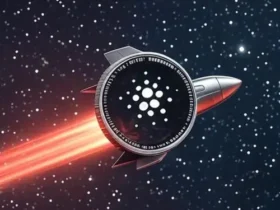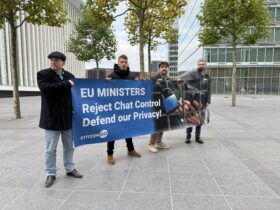Jorge Macri considers this to be “an unprecedented milestone.”
The protocol is open source, which guarantees transparency and auditability.
Today, October 22, 2024, the Government of the City of Buenos Aires, capital of Argentina, officially announced the integration of QuarkID into its miBA platform.
QuarkID, as CriptoNoticias has reported in the past, is a decentralized identity solution which is powered by zkSync, an Ethereum rollup.
miBA is a platform that allows access to government services and documents in the City of Buenos Aires. According to a statement sent to this information portal, on October 1 all miBA users received their own decentralized digital identity (DID).
It is explained in the official statement that “these DIDs are secured by the QuarkID wallet and settled in [la red zkSync] Was”. The announcement ensures that “this initiative positions Buenos Aires as a pioneer in the transformation of government services through blockchain technology, establishing a new global standard for digital identity focused on privacy.”
The goal of this novelty is that citizens have direct ownership of their personal information. “Through QuarkID, people can now access, store and share their verified credentials – such as birth certificates or tax documents – securely and independently,” the statement said.
This way, we would stop depending on physical documents that expose unnecessary information, such as full name or address to prove age. According to QuarkID “this ensures that no third party, including the Administration, can track when, how or why a credential is used.”
With QuarkID integration, miBA users will have access to more than 60 documents and digital certificatesincluding:
- Birth, marriage and death certificates.
- Student certificates.
- Vaccination certificates.
- Gross income tax certificates.
- Citizen credentials.
Other documents could be added in the coming months.
Jorge Macri, who is head of government (mayor) of the City of Buenos Aires, spoke about this news:
«The incorporation of zero-knowledge blockchain technology to the City’s digital identity system is an unprecedented milestone that positions us globally and demonstrates once again that the City of Buenos Aires is at the forefront of innovation. “Adopting new technologies that simplify citizen procedures and give them full control over their information is a fundamental step to continue offering more secure and transparent digital solutions.”
Jorge Macri, head of Government of the City of Buenos Aires.
Diego Fernández, Secretary of Innovation and Digital Transformation of the City of Buenos Aires, considers that “this initiative demonstrates the power of blockchain to revolutionize other use cases, such as government services, by empowering citizens to own their data. safely.” In this way, he explains, the foundations are laid “for a future in which the ownership of personal data is a basic right, protected by advanced cryptographic proofs based on zero knowledge.”
Regarding the technical aspects, QuarkID explains that “the verification of these credentials occurs through a secure peer-to-peer system, with zero-knowledge proofs that ensure that personally identifiable information is never exposed.” Besides, QuarkID architecture is open source.
As explained in Criptopedia (educational section of CriptoNoticias), “zero-knowledge proofs are a cryptographic technique that allows the validity of information to be tested without revealing it.”
CriptoNoticias, through a person with an active account on the miBA platform, carried out the corresponding process from the QuarkID application for mobile phones.
This is what the credentials wallet looks like:

The process of connecting the wallet with the digital identity, according to this user’s testimony, was agile as far as QuarkID was concerned. Instead, there was friction coming from the miBA application. For example, problems with account access or identity verification that had to be repeated 4 times until the system considered it valid.






Leave a Reply